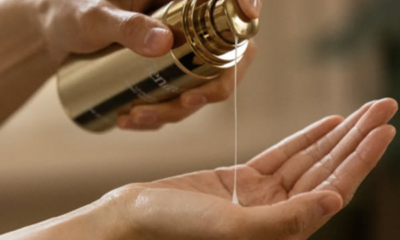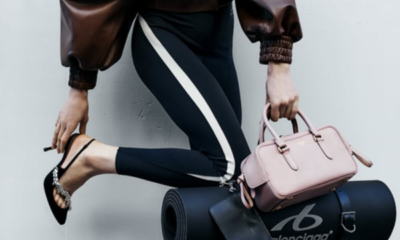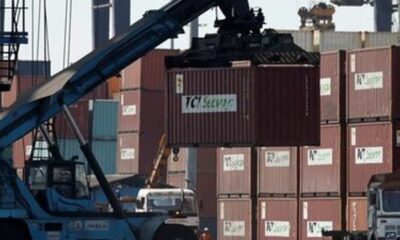Fashion
Vapesol: Portugal’s leading footwear sole manufacturer establishes a production unit for 5,000 pairs of SBR rubber soles
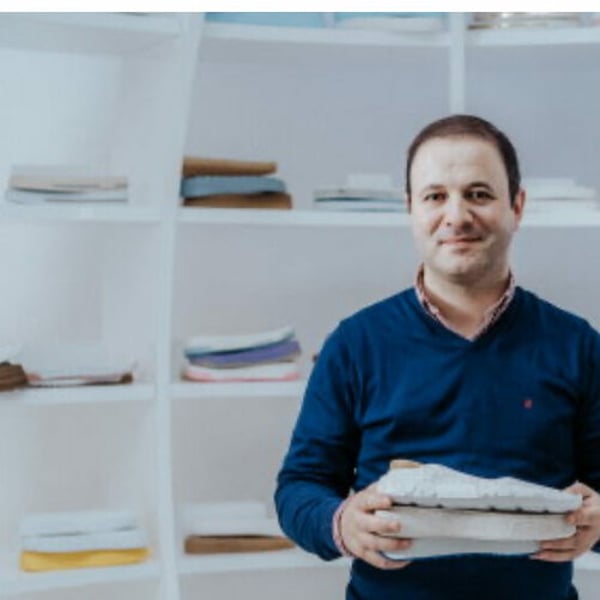
Published
October 16, 2025
Vapesol, Portugal’s leading manufacturer of footwear soles, which recently published its Sustainability Report in collaboration with the Portuguese Footwear Technology Centre (CTCP), has signed a commercial agreement with Tecnirolo/Lary Portugal to establish an SBR rubber sole production unit. The agreement includes an investment of €1.5 million, which will enable the company to produce 5,000 pairs of SBR rubber soles per day from February next year.
According to the statement FashionNetwork.com received, all of Vapesol’s rubber production “will be 100% injection moulded, whether single- or two-colour, abandoning the traditional compression moulding method”. This will be achieved using innovative methods that “meet the requirements for full monitoring, in line with the principles of Industry 4.0”, the statement continued.
This is a phased process, and Vapesol has already begun production, with further improvements to be implemented gradually through to mid-February next year.
“This will be a major new development at the largest international trade fair for footwear components,” said Décio Pereira, CEO of Vapesol.
According to APICCAPS (Associação Portuguesa dos Industriais de Calçado, Componentes, Artigos de Pele e seus Sucedâneos): “With two decades of experience in the rubber market, the company’s partner is a leader in implementing this advanced technology, guaranteeing greater production efficiency and lower scrap rates”.
Similarly, APICCAPS also pointed out that this technology, led by Tecnirolo/Lary Portugal, will substantially reduce labour during rubber preparation and injection.
This article is an automatic translation.
Click here to read the original article.
Copyright © 2025 FashionNetwork.com All rights reserved.
Fashion
Soshiotsuki wows with international debut at Pitti Uomo 109
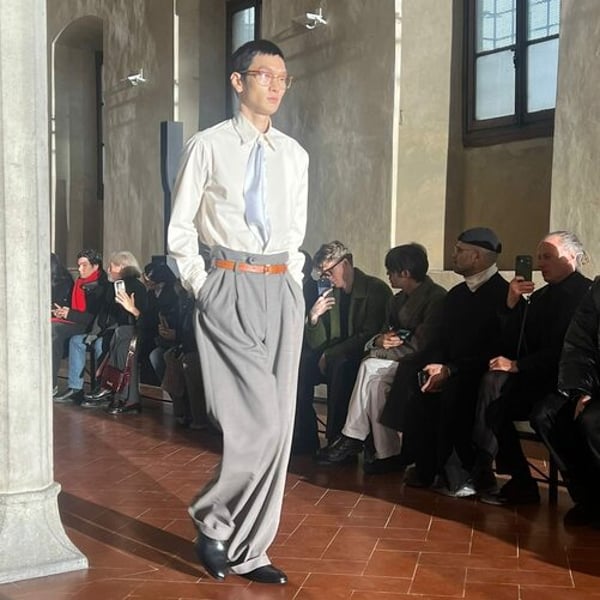
Published
January 15, 2026
Designer Soshi Otsuki won himself a huge ovation at the key gala show of Pitti Uomo on Thursday after presenting a brilliant collection that celebrated classic western tailoring, even as it subverted its codes.
A tour de force of draping, cutting, and silhouette, this fall 2026 collection from his brand Soshiotsuki was definitely a major fashion statement.
In a moment of volume in menswear, Otsuki opened the action with a perfectly judged trio of to-die-for double-breasted suits with peak lapels in crepe and fine wool in various shades of grey- cement, mud, or dove.
He cut his jackets to end well below the hip and his trousers were something else. Made with a half-dozen front pleats, they were elephantine but never outrageous. Otsuki is such a great natural tailor, the exaggeration merely added to the elegance.

Soshi is no slouch when it comes to leather either. From his copper-hued leather rock god suit to his cocoon style leather bomber jacket. And, just when you thought he was playing a little too safe, he sent out some fab jeans, so degraded they almost looked moth-eaten. Tokyo street style meets sartorial Italian.
Playing on couture techniques, the designer also whipped up several bias-cut green corduroy blazers and suits marrying Japanese eccentricity and British aplomb.
The show was the latest Italian/Japanese marriage at this edition of Pitti that began with a Sebiro Sanpo tailoring association Japanese suit march inside the Fortezza da Basso, the giant fortress where the salon is staged. Remarkably, Otsuki has never actually studied suiting formally, but he somehow understands it instinctively.

The soundtrack, culled from composer Joe Hisaishi’s soundtrack to Takeshi Kitano’s 2000 gangster movie Brother, featured a beautifully yearning saxophone solo. It would have felt just right for one of Douglas Sirk’s 1950s melodramas starring Rock Hudson. One almost expected Rock to take the final passage.
Presented inside the beautiful Refetterio Santa Maria della Novella, a looming Gothic refectory at the back of the legendary Renaissance Basilica, this was a bravura display.
Altogether, a bases loaded, home run, smash hit collection. One could say it felt like a star is born moment in menswear, except that Soshi Otsuki was already acclaimed. He is the latest winner of the LVMH Prize.
Talk about backing up winning an award with a great fashion statement.
Copyright © 2026 FashionNetwork.com All rights reserved.
Fashion
Skincare brand Genaura promotes marketer Young to MD

Published
January 15, 2026
Luxury skincare brand Genaura has promoted Nicola Young to managing director, moving up from chief marketing officer following the brand’s product launch to market in September.
Young’s promotion is underscored by “an impressive career”, which has included senior positions at Carlton Screen Advertising, marketing director at Jazz FM and Magic 105.4FM, and group director of Marketing at radio conglomerate Global Player.
Most notably, her beauty industry involvement included director of Media UK at Estée Lauder Co.
Young said the launch of Genaura “has the potential to revolutionise the beauty and wellness sector… my experience in this field has helped drive the marketing vision so far, and I look forward to progressing even further”.
She added: “Looking to… the growth of Genaura, I am excited to scale and innovate whilst remaining authentic to the scientific background of the product, planning global recognition of this revolutionary ingredient exclusive to Genaura.”
Available in the UK currently, the business has “aspirations for 2026 and beyond… extending skincare products within the range.”
Genaura claims to be a “world first in skincare”, with its Genaura Levagen + Smart Face serum “boasting a powerhouse formula alongside patented technology… creating an ‘age-proofing’ approach to the skin and supporting the skin’s natural barrier function”.
Copyright © 2026 FashionNetwork.com All rights reserved.
Fashion
Trident accelerates European home textiles expansion
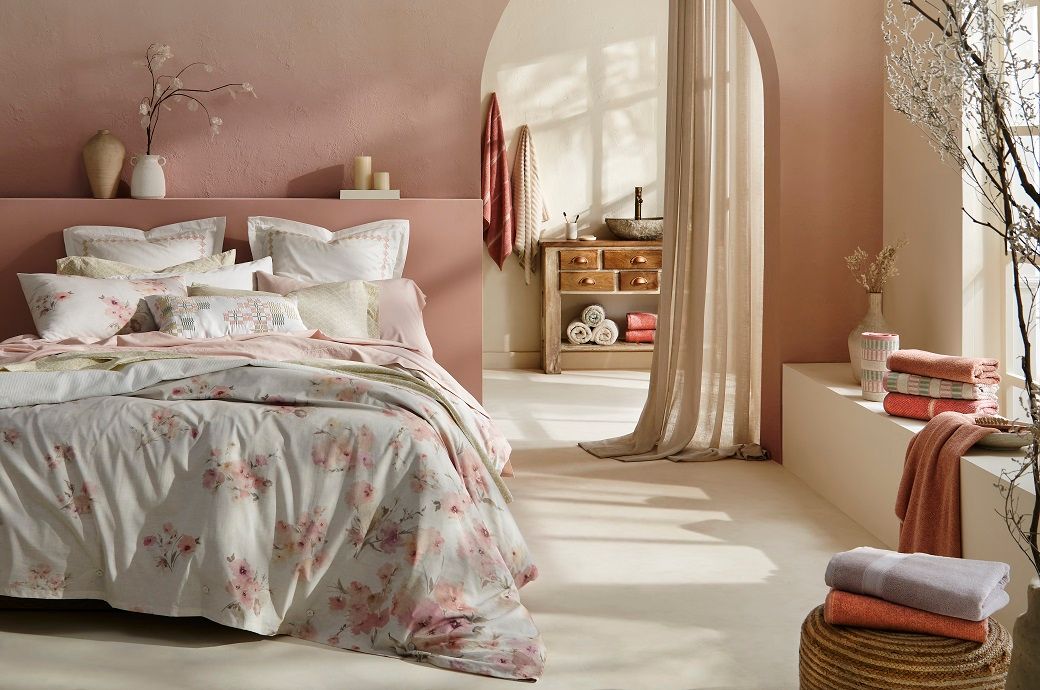
One of India’s leading integrated home textile manufacturers, is strengthening its presence in Europe as it showcases its latest collections at Heimtextil 2026, the world’s largest trade fair for home and contract textiles, being held in Messe’ Frankfurt from January 13–16, 2026. The participation underlines Trident’s focus on expanding its European footprint amid improving trade prospects driven by proposed Free Trade Agreements (FTAs between India, the UK and the European Union)
Trident is strengthening its European presence by showcasing its TG ‘Visible Invisible’ collection at Heimtextil 2026, highlighting sustainability, AI and design-led innovation.
Backed by proposed India-UK-EU FTAs and new Directors in Germany and France, the company is deepening ties with European retailers and gaining strong buyer interest.
At Heimtextil, Trident is presenting its TG collection, built around the theme “Visible Invisible”, which brings together contemporary design, sustainability and innovation. The showcase highlights how everyday home textiles are shaped by thoughtful design choices, responsible sourcing and advanced manufacturing, aligned with the evolving expectations of European consumers. This year at Heimtextil – sustainability and AI in Home Textile would be in focus.
Commenting on the company’s European strategy, Abhishek Gupta CEO Strategy & Marketing Trident Group, said, “Europe is a strategic market for our home textiles business. With favourable trade developments on the horizon, we are investing in local leadership and showcasing collections that reflect European preferences for sustainability, quality and design. Our participation at Heimtextil reinforces our commitment to long-term growth in the region.” He furthered “Europe continues to be a key market for Trident, supported by mature retail ecosystems, growing demand for sustainable products and increasing diversification of sourcing. The global home textiles market is estimated at USD 136–140 billion, with steady growth expected over the coming years. Against this backdrop, Trident is positioning itself to deepen partnerships with European retailers and scale its business responsibly”.
To support this expansion, Trident has strengthened its local presence with the appointing of dedicated Directors for Germany and France, enabling closer engagement with customers, faster response times and stronger on-ground relationships across key markets.
Trident’s Heimtextil showcase draws inspiration from Indian aesthetics and modern global trends, translating emotions such as comfort, joy and strength into bath and bed linen collections. The TG range features responsibly sourced cotton, performance-led finishes and contemporary colour palettes, and has received encouraging interest from buyers across Germany, France, the UK and other European markets during the fair
With favourable trade tailwinds, a strong design-led offering at Heimtextil, and enhanced European leadership, Trident is well placed to accelerate its growth journey in the European home textiles market.
Note: The headline, insights, and image of this press release may have been refined by the Fibre2Fashion staff; the rest of the content remains unchanged.
Fibre2Fashion News Desk (HU)
-

 Politics1 week ago
Politics1 week agoUK says provided assistance in US-led tanker seizure
-

 Entertainment1 week ago
Entertainment1 week agoDoes new US food pyramid put too much steak on your plate?
-

 Entertainment1 week ago
Entertainment1 week agoWhy did Nick Reiner’s lawyer Alan Jackson withdraw from case?
-

 Business1 week ago
Business1 week agoTrump moves to ban home purchases by institutional investors
-

 Sports5 days ago
Sports5 days agoClock is ticking for Frank at Spurs, with dwindling evidence he deserves extra time
-

 Sports1 week ago
Sports1 week agoPGA of America CEO steps down after one year to take care of mother and mother-in-law
-

 Business1 week ago
Business1 week agoBulls dominate as KSE-100 breaks past 186,000 mark – SUCH TV
-
Sports6 days ago
Commanders go young, promote David Blough to be offensive coordinator




